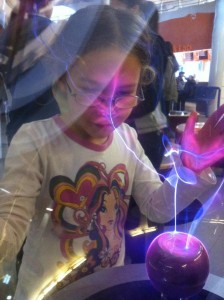The Science of Giving: How Helping Others Helps You
February 03, 2015
4 min read
Did you know?
Giving to charity produces the same effect in the brain as eating chocolate or going for a run
Giving to others makes you happier and your life more meaningful
People with strong social connections don’t get sick as often, heal faster and live longer
Learn more:
Want to Be Happier? Give More. Give Better.
The Compassionate Mind
If you’ve ever experienced that warm, fuzzy feeling that comes from helping someone out, being kind, or sharing what you have with others, then you’ve experienced the science of giving.
Countless scientific studies have shown that the good feeling you get from giving creates a chain reaction that results in a healthier, happier you. And a healthier, happier world.
Want to live longer? Start giving!
Giving is an Important Part of a Healthy Lifestyle
Humans are wired to care for one another, but often we don’t think about being charitable unless we’re expressly asked to contribute.
By making giving a regular part of everyday life, we can maximize the health benefits of this benevolent habit, and make the world a healthier, happier place, too.
Here are three easy ways to boost the health benefits of giving in your daily life.
Giving to charity is an easy and accessible way to put your time and resources toward solving problems you care about.![]()
1. Give to Charity Regularly
Giving to charity is an easy and accessible way to put your time and resources toward solving problems you care about.
- There are approximately 85,000 registered charities in Canada working to make the world a better place
- Charitable causes span a wide range of issues — from the environment to the arts, health, education and social justice issues
- Start with what you care about. The best way to engage in charity is to start with the causes that interest you or problems that bother you
- Giving isn’t just about money. You can give your time or knowledge, and be a part of something bigger
2. Understand that You Change the World Every Day
Every action you take — or don’t take — adds up. You make the world a better place with regular contributions, however large or small, to the causes you care about.
- Small contributions make a big difference to charities, and make giving accessible and affordable
- Creating a regular giving habit is the best way to make an impact on the causes you care about
- Being informed and thoughtful about the impact you want to have empowers you to give on your terms
3. Model Your Giving Habits with Family and Friends
Children are hard-wired to be caring, and family giving is the best way to raise generous and empathetic kids. When you involve family and friends in your actions, you spread the goodwill and the health benefits.
- When children see generosity modelled, they are more likely to be generous themselves (Lipscomb, 1985)
- Parents are the most influential models in children’s giving behaviour
- Sharing your giving habits with your family and friends makes the experience more rewarding and impactful
You’re Invited: Discover the Science of Giving on Family Day
Join us at Science World on Family Day (February 9) to learn more about the Science of Giving.
- Explore causes you care about
- Participate in a charitable scavenger hunt
- Learn how you change the world
- Make charitable giving part of everyday living
When: Monday, February 9, 2015, 10 am – 6 pm
Where: Science World at TELUS World of Science, 1455 Quebec Street, Vancouver
Suggested donation: $25 per family of four
All proceeds from this special Family Day event go to support development of Science World’s new Wonder Gallery.
Double your impact: All Family Day donations will be matched (up to $25,000).
Registration: Get your advance ticket now!
The Science of Giving on Family Day is powered by Chimp.

